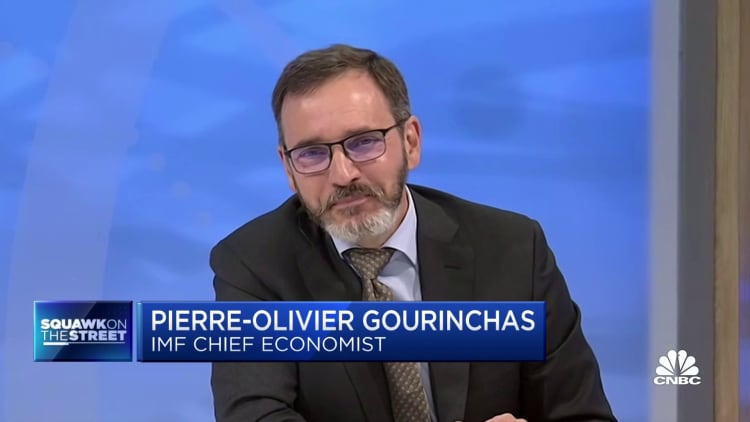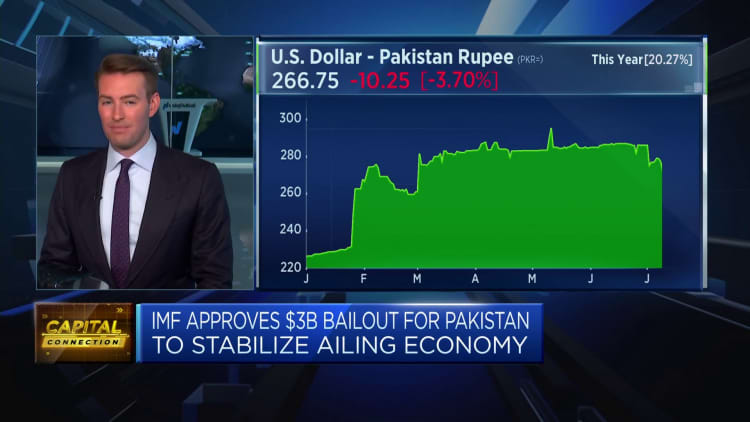IMF raises global growth forecast despite China’s recovery ‘losing steam’


The International Monetary Fund on Tuesday raised its growth forecast for the global economy, turning slightly more positive despite slowing momentum from China.
In the latest update to its World Economic Outlook, the IMF raised its 2023 global growth prediction by 0.2 percentage points to 3%, up from 2.8% at its April assessment. The IMF kept is 2024 growth forecast unchanged at 3%.
In terms of inflation, the Fund also expects an improvement from last year. Headline inflation is projected to reach 6.8% this year, falling from 8.7% in 2022. However, core inflation, which strips out volatile items, is seen declining more slowly to 6% this year, from 6.5% last year.
“The global economy continues to gradually recover from the pandemic and Russia’s invasion of Ukraine. In the near term, the signs of progress are undeniable,” Pierre-Olivier Gourinchas, the chief economist of the IMF, said in an accompanying blogpost Tuesday. “Yet many challenges still cloud the horizon, and it is too early to celebrate,” he added.
The IMF highlighted concerns with tighter credit conditions, depleted household savings in the U.S. and a shallower-than-expected economic recovery in China from strict Covid-19 lockdowns.

“In the United States, excess savings from the pandemic-related transfers, which helped households weather the cost-of-living crisis and tighter credit conditions, are all but depleted. In China, the recovery following the reopening of its economy shows signs of losing steam amid continued concerns about the property sector, with implications for the global economy,” Gourinchas said.
The U.S., the world’s largest economy, is set to grow 1.8% this year and 1% in 2024, according to the IMF. In China, gross domestic product is seen falling from 5.2% this year to 4.5% for 2024.
“Continued weakness in the [Chinese] real estate sector is weighing on investment, foreign demand remains weak, and rising and elevated youth unemployment, at 20.8% in May 2023, indicates labor market weakness,” the IMF said in its report. It added that “high-frequency data through June confirm a softening in momentum into the second quarter of 2023.”
The comments come after Chinese stocks rallied Tuesday off the back of comments from the country’s authorities that they are preparing more stimulus. Beijing is reportedly working on new measures to expand domestic demand, according to Reuters, citing China’s state news agency.
Germany
Among Europe’s major economies, Germany is the only one where the IMF has cut its growth expectations for this year. The Fund sees the German economy contracting by 0.3% this year, that’s a reduction of 0.2 percentage points from April’s forecast. This is due to weaker manufacturing output and lower growth performance during the first quarter of this year, the IMF said.
Data released Monday showed business activity shrinking at a faster pace than expected in July across the euro zone. In Germany, the data pointed to an economic contraction with manufacturing production levels dropping for the third month in a row and at the fastest pace since May 2020.
“This is a bad start to the third quarter for Germany’s economy, with the flash PMI dropping into contraction territory. The downturn continues to be led by the manufacturing sector, while the slowdown in services sector growth that started last month has extended into July,” Cyrus de la Rubia, chief economist at Hamburg Commercial Bank, said about the data release.










